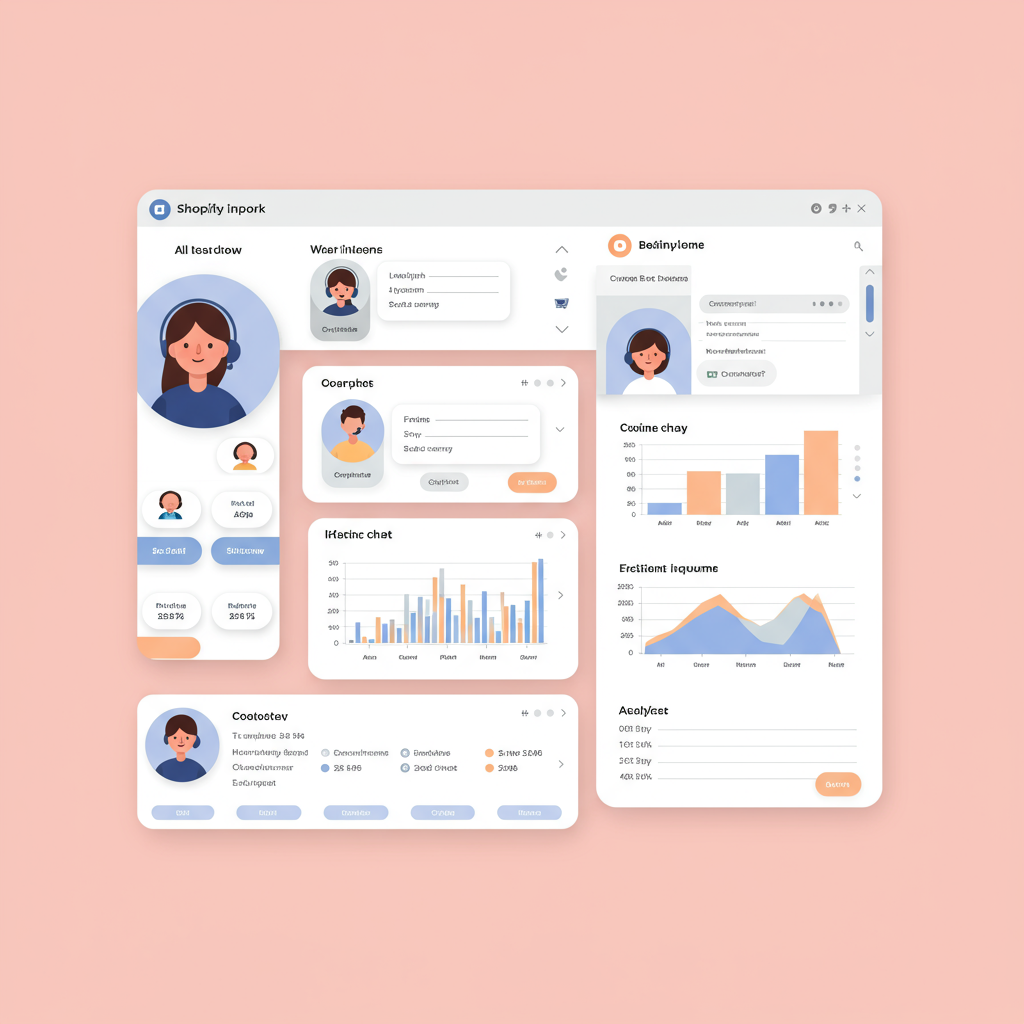Discover how to streamline customer service, boost efficiency, and delight your customers with the right helpdesk solution for your e-commerce business.
As a Shopify merchant, I’ve learned that customer service isn’t just a department; it’s the backbone of a thriving e-commerce business.
In today’s competitive landscape, customers expect quick, personalized, and efficient support across multiple channels.
This is where a dedicated helpdesk app becomes not just a luxury, but an absolute necessity for your Shopify store.
I remember the early days, juggling emails, social media DMs, and live chat requests manually. It was chaotic, inefficient, and frankly, unsustainable.
That’s why I embarked on a journey to find the best helpdesk solutions tailored for Shopify, and I want to share my insights with you.
A good helpdesk app centralizes all your customer interactions, streamlines workflows, and empowers your team to deliver exceptional support.
But with so many options available, how do you choose the right one for your unique business needs? Let’s dive into what I consider essential features.
First, **Multi-Channel Support** is non-negotiable. Your customers reach out via email, live chat, social media, and even phone. Your helpdesk should consolidate all these.
Second, **Shopify Integration** is paramount. The app needs to seamlessly pull customer order history, shipping details, and other relevant data directly from your Shopify store.
Third, **Automation Capabilities** can be a game-changer. Think auto-responses, ticket routing, and macro creation to handle common queries quickly.
Fourth, **Reporting and Analytics** are vital. You need to track key metrics like response times, resolution rates, and customer satisfaction to identify areas for improvement.
Fifth, **Scalability** is important. As your store grows, your helpdesk solution should be able to grow with you, handling increased volume without a hitch.
Finally, **Ease of Use** for your team is crucial. A complex interface will hinder productivity, no matter how many features it boasts.
Now, let’s talk about some of the top contenders I’ve encountered and evaluated for Shopify merchants.
**Gorgias** is often hailed as the king of e-commerce helpdesks, and for good reason. It’s built from the ground up with Shopify in mind.
Its deep integration allows agents to see customer order history, modify orders, and even issue refunds directly from the helpdesk interface. This saves immense time.
Gorgias excels in automation, allowing you to set up rules that automatically tag tickets, assign them to specific agents, or even respond to common questions.
However, its pricing can be on the higher side, especially for smaller stores, and it might offer more features than some very small businesses initially need.
**Zendesk** is a powerhouse, a comprehensive solution used by businesses of all sizes. It’s incredibly robust and customizable.
While not e-commerce specific, its Shopify integration is strong, and it offers a vast array of features, including AI-powered bots and extensive reporting.
The downside? Zendesk can be complex to set up and manage, requiring a steeper learning curve. It might be overkill for a new or small Shopify store.
**Freshdesk** offers a more budget-friendly alternative to Zendesk, providing a solid suite of features for customer support.
It includes multi-channel support, automation, and reporting, making it a strong contender for growing Shopify businesses looking for value.
Its Shopify integration is good, though perhaps not as deeply embedded as Gorgias. It strikes a good balance between features and affordability.
**Help Scout** focuses on delivering a human-centric customer experience. Its interface is clean, intuitive, and designed to make agents’ lives easier.
It emphasizes shared inboxes, private notes, and collision detection to ensure seamless team collaboration.
While it integrates well with Shopify, Help Scout might appeal more to businesses prioritizing simplicity and a personal touch over complex automation workflows.
**Reamaze** is another strong e-commerce-focused helpdesk that I’ve seen many Shopify merchants adopt. It offers live chat, email, social media, and even push notifications.
Its strength lies in its comprehensive e-commerce features, including abandoned cart recovery and proactive messaging, alongside traditional helpdesk functions.
Reamaze is often praised for its ease of use and quick setup, making it a great option for stores that want to get up and running fast.
**Richpanel** is an interesting newer player, leveraging AI to offer self-service portals and automated resolutions.
It aims to deflect common queries, allowing your agents to focus on more complex issues, which can significantly reduce support volume.
Richpanel’s focus on self-service and AI might be particularly appealing to stores with a high volume of repetitive questions.
When making your decision, I recommend considering your current support volume, your team size, your budget, and the specific channels your customers use most.
Don’t be afraid to take advantage of free trials. Test out a few options with your actual team and customer scenarios.
Implementing a new helpdesk takes time, but the long-term benefits in terms of efficiency, customer satisfaction, and ultimately, sales, are immeasurable.
A well-chosen helpdesk app transforms customer service from a cost center into a powerful growth engine for your Shopify store.
It allows you to build stronger customer relationships, foster loyalty, and gain valuable insights into your product and service.
Remember, happy customers are repeat customers, and a great helpdesk is your secret weapon in achieving that.
What do you think about this article? I’d love to hear your thoughts and experiences with helpdesk apps for Shopify.
Investing in the right helpdesk solution is one of the best decisions you can make for your Shopify business.
It’s about empowering your team and delighting your customers, leading to sustainable growth.






